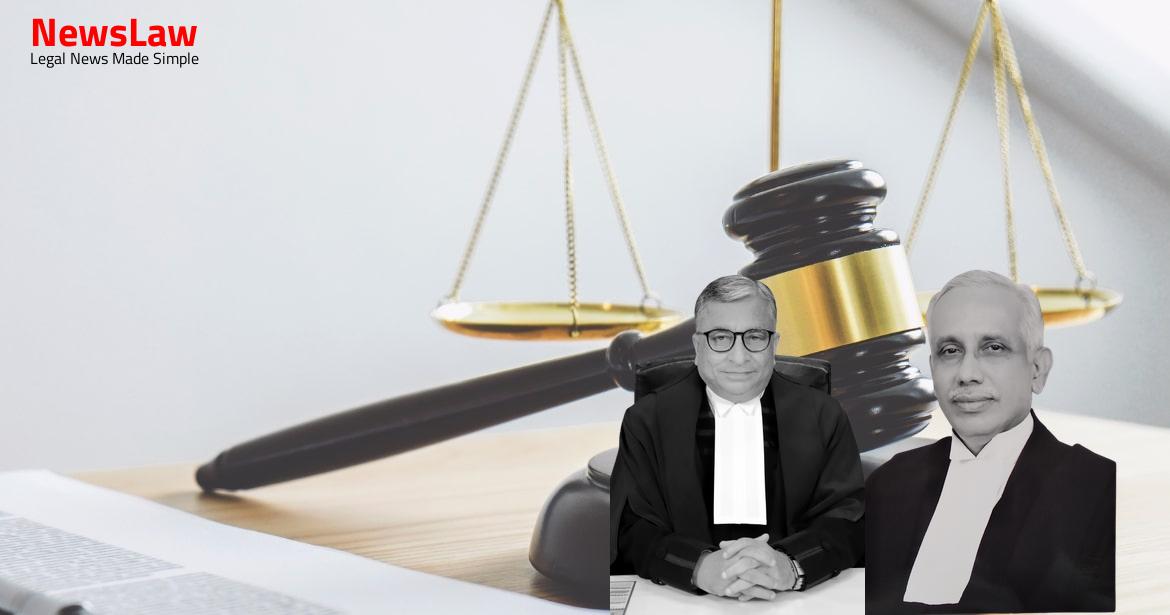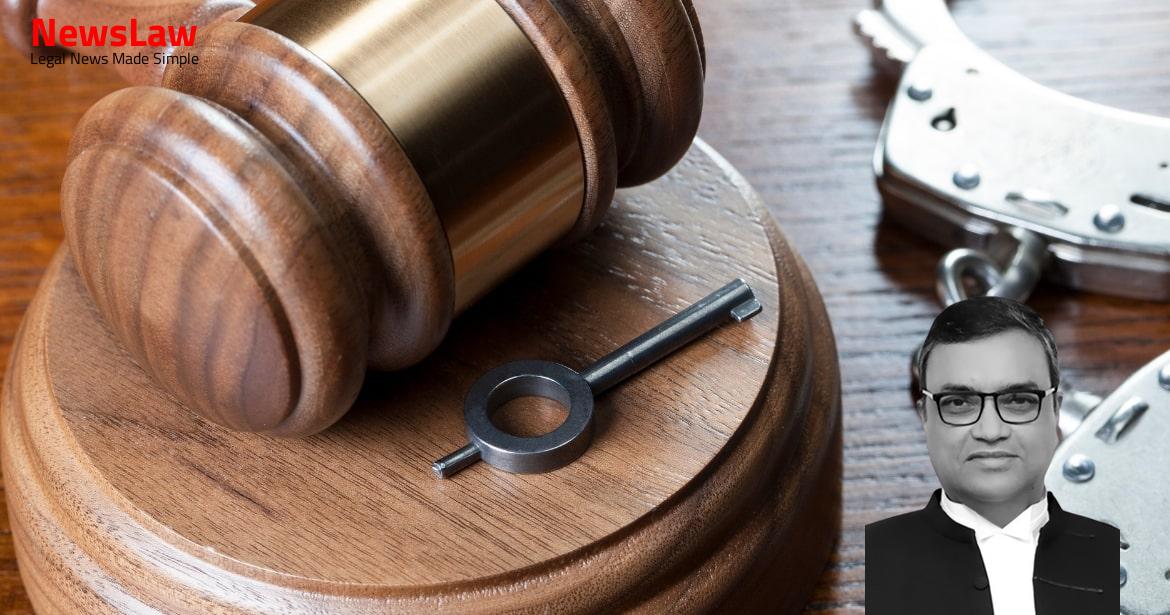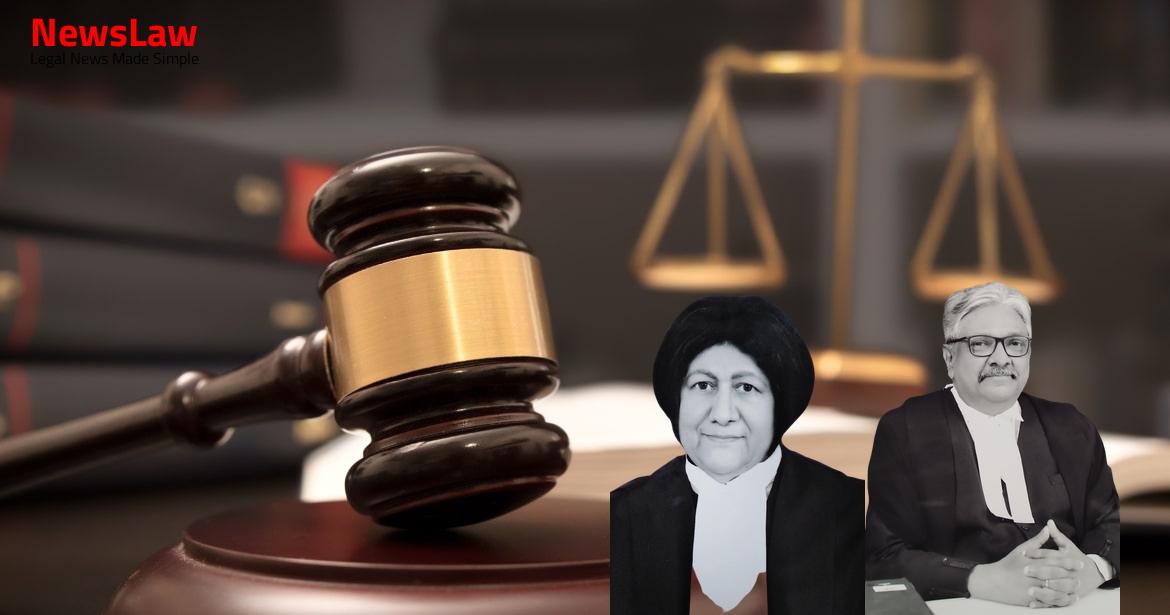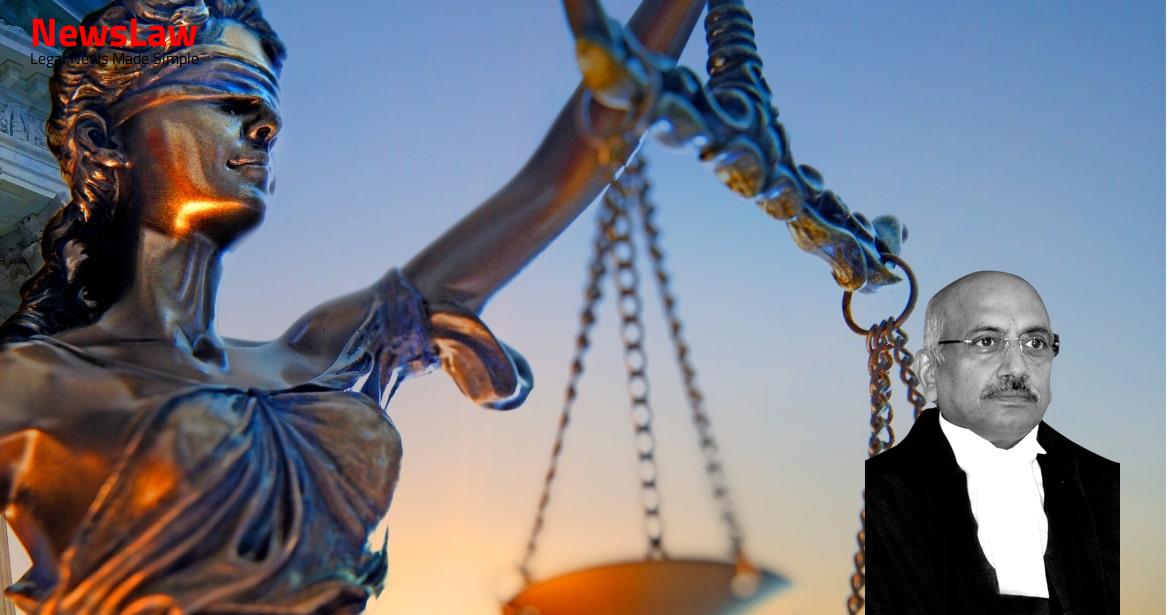The court’s legal analysis emphasized the necessity of litigants disclosing all relevant facts in legal proceedings to ensure fairness and transparency. Withholding key information can lead to dismissal of a case without consideration, highlighting the importance of honesty in court. The case underscores the significance of approaching the court with clean hands and providing a full and fair disclosure of all material facts, as deceptive practices have no place in equitable and prerogative jurisdiction.
Facts
- Writ Appeal Nos.2592-2593/2009 were dismissed by the Division Bench of the High Court.
- Review petitions were also dismissed by the High Court subsequently.
- Learned Single Judge dismissed the writ petition on 01.04.2009.
- The Division Bench of the High Court passed a judgment on 11.01.2013 in Review Petition Nos.147/2012 and 1361/2012.
- Appellants filed review petitions after the liberty was granted by the Supreme Court.
- High Court declined to review its earlier order dated 06.07.2011 passed in the Writ Appeal Nos.2592-93 of 2009.
- M. Krishna Reddy filed an application for enhancement of compensation under the Land Acquisition Act, 1894.
- The Civil Court accepted the Reference in part and increased the award amount for 1 acre 18 guntas in Survey Nos.13/2 & 13/4.
- Remaining 8 guntas of land not acquired, appellants partitioned it among themselves.
- Appellants’ father granted occupancy right of 1 acre 26 guntas in Survey Nos. 13/2 & 13/4 as per final Notification.
- BDA formed sites in the 8 guntas left out from acquisition and allotted them to respondent nos. 5 & 6.
- Appellants received the award amount on 30.11.1971.
- Writ petitions filed for cancellation of allotment of sites by BDA to respondents 5 & 6.
- Appellants filed Suit against BDA for permanent injunction regarding the 8 guntas not acquired.
- Claims of ownership and possession over Survey No.13 by M. Krishna Reddy disputed in legal proceedings.
- Trial Court dismissed Suit for permanent injunction, confirmed by High Court on appeal.
Also Read: Analysis of Legitimate Expectation in Public Law
Arguments
- Mr. S.K. Kulkarni, learned counsel for the respondent-BDA, has supported the impugned judgment and order of the High Court.
Also Read: Interpretation of Legislation by Incorporation in Land Acquisition Proceedings
Analysis
- The litigants are required to disclose all relevant facts to the court.
- The trial court found that the suit was barred under Section 9 of CPC due to final and conclusive acquisition proceedings.
- The importance of parties approaching the court with clean hands and disclosing all material facts is emphasized.
- Suppression of material facts can lead to dismissal of the case without adjudication.
- The necessity of disclosing all legal proceedings related to the subject matter of dispute is highlighted.
- The appellants in this case were found to have suppressed material facts regarding previous legal actions in their writ petition.
- Thus, they were not entitled to the discretionary relief sought.
- It is crucial for applicants to be truthful and transparent when invoking extraordinary court jurisdiction.
- The act of withholding vital information for personal gain is deemed as playing fraud with the court and the opposing party.
- Manipulation or misrepresentation has no place in equitable and prerogative jurisdiction.
- When applying for a prerogative remedy, the applicant must provide a full and fair disclosure of all material facts to the court.
- If the court finds that the applicant has made false statements, suppressed material facts, or attempted to mislead the court, the action may be dismissed solely on those grounds.
- The court exercises its power to dismiss actions in cases where it is convinced that deception has occurred.
- The jurisdiction for prerogative writs is extraordinary, equitable, and discretionary under Articles 32 and 226 of the Constitution.
- Petitioners approaching the writ court must present all facts without concealment or suppression and seek relief in good faith.
- Failure to disclose relevant facts or misleading the court can lead to the dismissal of the petition without further consideration of the merits.
- Prerogative remedies are not granted as a matter of course; the conduct of the party invoking the jurisdiction is taken into account by the court when exercising extraordinary power.
- The appellant claimed that only a portion of the land was acquired by the BDA, while the rest remained in their possession.
- However, evidence showed that the entire extent of land in Sy. No. 13 had been acquired by the BDA and compensation was paid.
- Plaintiff’s father had participated in the acquisition proceedings and was a notified khatedar.
- The High Court’s finding that the entire land was acquired by the BDA has finality, and the writ court cannot review it.
Also Read: Legal Analysis on Recovery of Excess Payments in Service
Decision
- The appeals are dismissed as no merit is found in them.
- The conclusions reached by the court are binding on the appellants.
- Pending applications, if any, will be considered disposed of.
Case Title: SHRI K. JAYARAM Vs. BANGALORE DEVELOPMENT AUTHORITY REP BY ITS COMMISSIONER (2021 INSC 842)
Case Number: C.A. No.-007550-007553 / 2021



